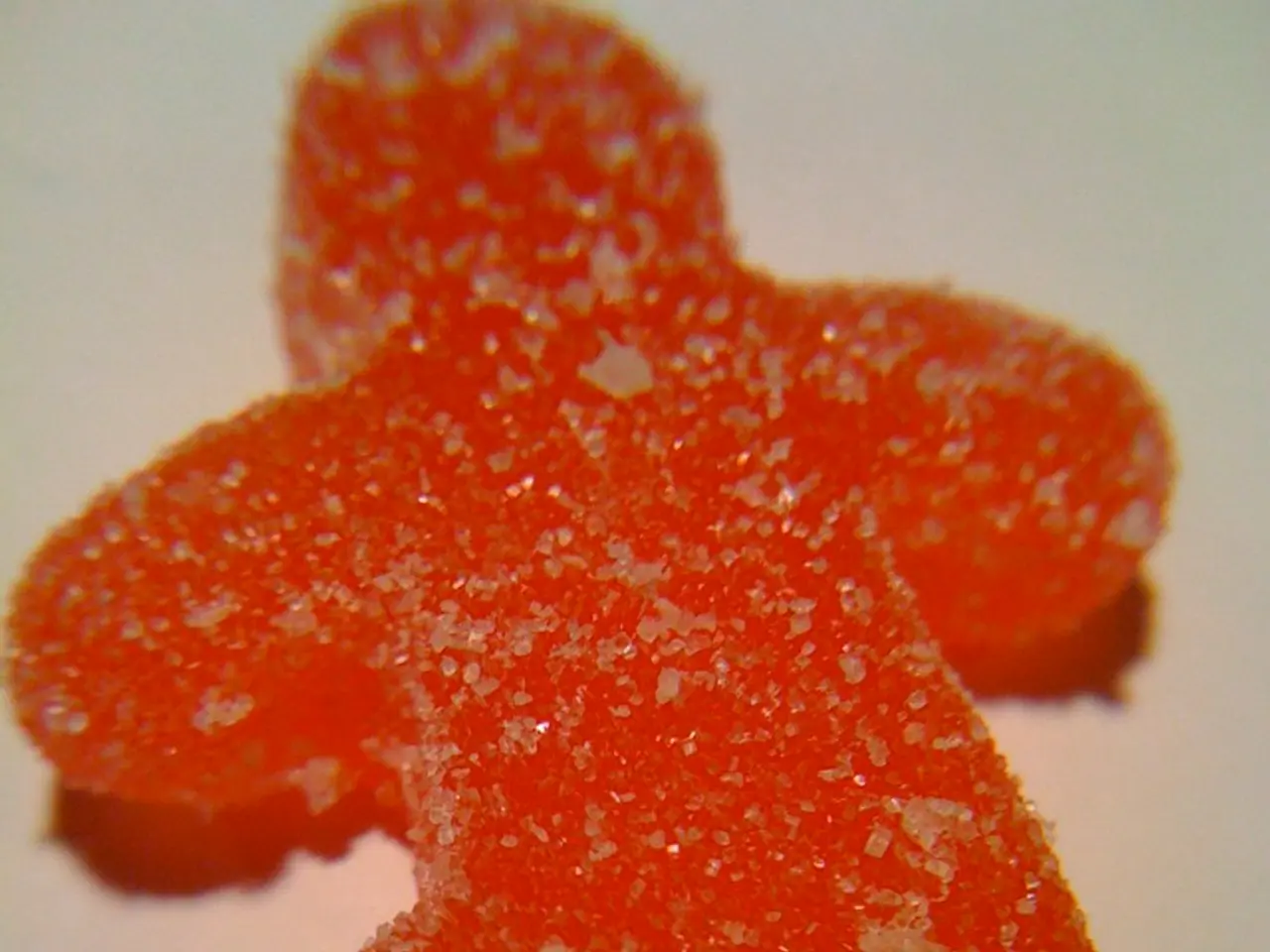Examining the Quantity of Sugar in a Teaspoon of Honey: An In-Depth Analysis
Honey and refined sugar are two commonly used sweeteners, but they have distinct differences in their composition, nutritional value, and impact on blood sugar levels.
A teaspoon of honey, approximately 7 grams or 0.25 ounces, typically contains around 5.7 to 6 grams of sugar. This sugar content is primarily natural sugars, predominantly fructose and glucose, with trace amounts of sucrose and other complex carbohydrates. In contrast, a teaspoon of refined white sugar typically contains about 4 grams of pure sucrose (table sugar).
The sugar composition of honey can vary depending on the floral source and environmental conditions. For instance, Jarrah and Manuka honeys have a higher fructose-to-glucose ratio, making them sweeter than table sugar. This higher fructose content also results in a lower glycemic index (GI) for honey, with many types ranging from about 50 to 55, whereas refined sugar's GI is approximately 60–65.
The glycemic index is a measure of how quickly a food raises blood sugar levels. A lower GI means that the food causes a slower and steadier rise in blood sugar than a high GI food. This is significant because a slower rise in blood sugar can help manage blood sugar levels and reduce the risk of spikes and crashes.
Nutritionally, honey contains trace nutrients, antioxidants, and enzymes not found in refined sugar, making it a more natural option. However, both sweeteners should be consumed in moderation, especially by people monitoring blood sugar.
It's worth noting that honey also contains prebiotics, which promote the growth of beneficial bacteria in the gut, and it can be an effective cough suppressant, particularly for children.
The American Heart Association recommends limiting added sugar intake to no more than 6 teaspoons (25 grams) per day for women and 9 teaspoons (36 grams) per day for men. When considering sweeteners, it's essential to keep these guidelines in mind and remember that even natural sweeteners like honey should be consumed in moderation.
In summary, a teaspoon of honey contains a similar amount of sugar compared to refined sugar, but the type of sugars, sweetness, and metabolic effects differ, with honey generally having a lower glycemic impact and additional nutritional benefits.
Science reveals that honey, often used in health-and-wellness and nutrition, provides more than just a sweet taste. Unlike refined sugar, commonly utilized in fitness-and-exercise for energy boosts, honey contains traces of nutrients, antioxidants, and enzymes, making it a more beneficial sweetener choice according to nutritional studies.




